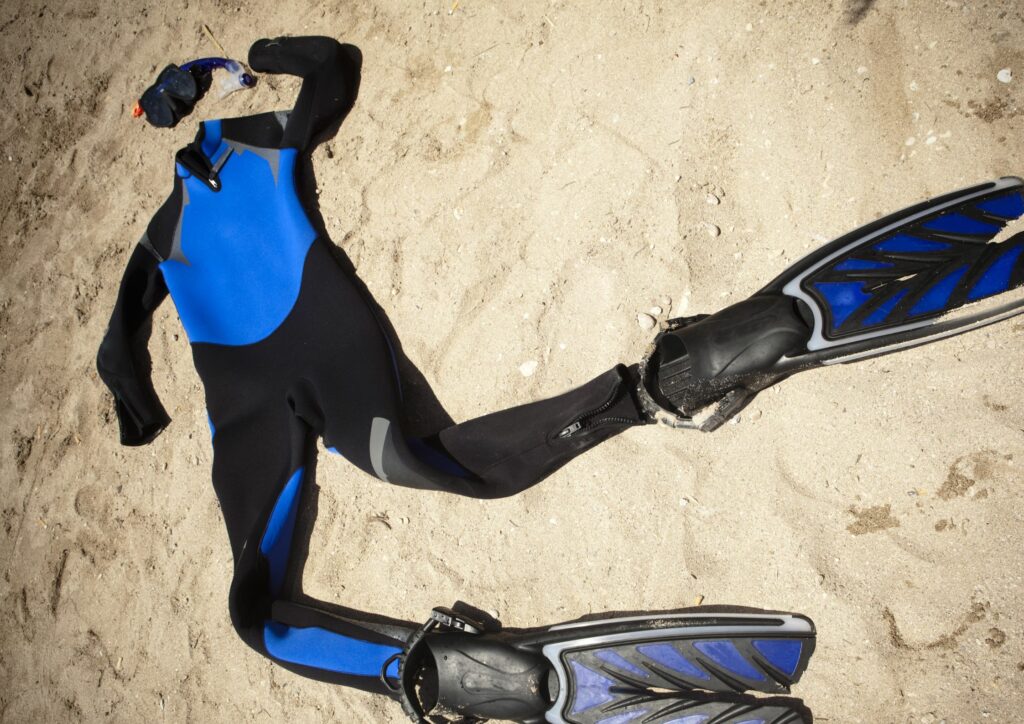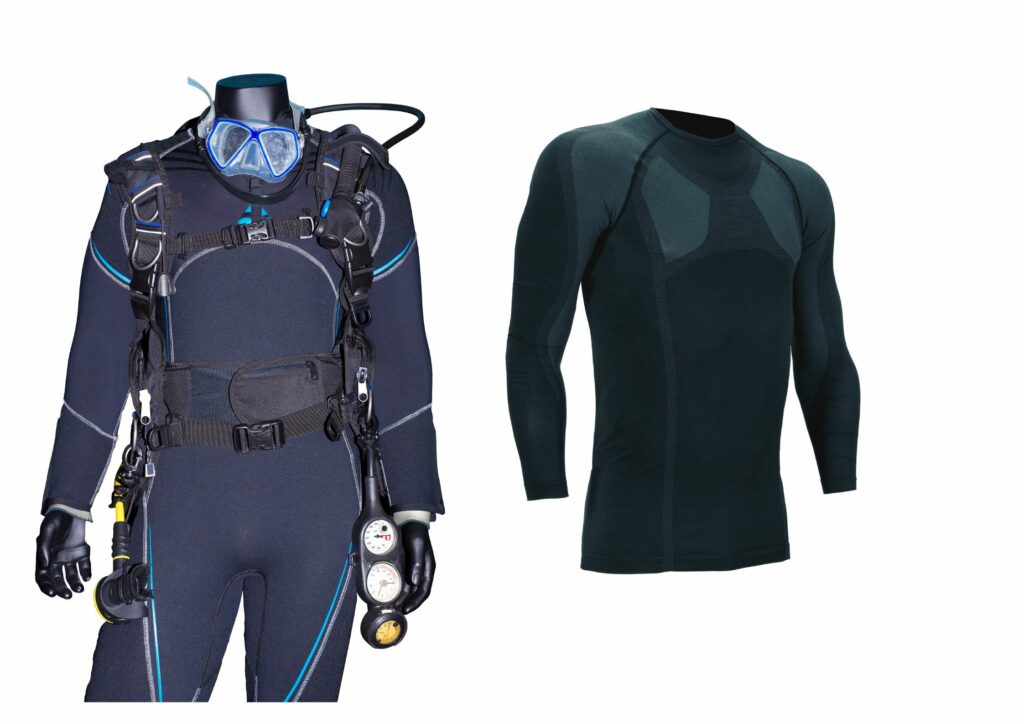Welcome, scuba enthusiasts! With so many facets to consider for enjoyable underwater excursions, understanding sea water temperatures and the type of scuba diving suit to wear is crucial. This blog will dive into the world of diving suit, dry suits and wet suits, providing an in-depth comparison, so you can gear up appropriately for your scuba adventures, be it a lovely winter dive or a deep sea endeavour!
Diving Suit Basics: Wet Suit vs Dry Suit
Scuba diving is a memorable adventure under the sea but in order to fully enjoy this experience in different environments and temperatures, it is crucial to understand the two primary types of scuba suits: wet suits and dry suits. Both of these suits provide necessary insulation underwater however, their functionality and used are distinctly different. Wet suits are uniquely designed to allow a thin layer of water to permeate, which your body then heats, adding to its insulation capability by creating a warming barrier.
On the contrary, a dry suit is formulated with the aim to keep you completely dry preventing any water ingress. Dry suits come with seals on the neck and wrists, blocking any chance of water entering inside your suit leaving you perfectly dry and comfortable in various diving conditions.
Plunging into the Wet Suit: Pros and Cons

Plunging into the advantages of wet suits, they tend to be considerably more flexible, which allows for improved mobility underwater. They are also cheaper making them an affordable option, and are easier to get on and off. They are perfect for warm to mild sea water temperatures which makes them an ideal suit for beginner to intermediate scuba divers.
But, like anything, wet suits come with a set of disadvantages. They are not quite adequate for very cold water or lengthy winter diving. This is because the layer of Diving Suit water inside the suit can cool down overtime, which can cause the diver’s body temperature to drop potentially leading to hypothermia, which is a significant risk on lengthy dives or in colder waters.
Submerging in the Dry Suit: Pros and Cons
On the other hand, dry suits provide certain benefits that wet suits do not. Their main edge is their ability to withstand cold temperatures. The design and inherent functionality of dry suits makes them optimal for winter diving, deep sea diving, or diving in water continuously below 15°C. The suit allows divers to wear extra insulating layers underneath as well adding buoyancy, which can be crucial for safety while on deeper dives. However, dry suits come with some drawbacks. They can be on the pricier side making them a significant investment. They’re also deemed more technical to operate, thus require a higher skill level, and they require more maintenance than wet suits to keep them in optimal condition.
Making the Dive Choice: Factors to Consider
Deciding on the right diving suit is an important choice that depends significantly on several factors such as its intended use, your budget, and personal comfort. A seasoned diver involved in deep-sea explorations would prefer a dry suit for its ability to provide warmth in colder depths and the added buoyancy. However, an intermittent or casual diver might find a wet suit more adequate due to its convenience and lower cost. The most important factor for diving suit is safety and comfort – these should always be prioritized over all else, including price point. Choose a suit that best fits your specific diving needs and always remember to consider the conditions of where you are diving.
Resurfacing: Final Dive Down into Decision Making in Bali Diving
In conclusion, both wet suits and dry suits serve specific purposes depending on a range of factors, from sea water temperature to the depth of your Bali Diving. Consideration of the advantages and disadvantages of each can guide you to the right decision for your diving needs. Whatever you choose, here’s to safe and wonderful underwater adventures!

As someone who loves diving in Bali, I found this post super informative! The tips on choosing the right suit are especially helpful. Thanks for sharing your expertise!
Hi Nadia, thank you for taking the time to read our blog post and share your thoughts with us! We’re thrilled that you found it informative and helpful. Choosing the right diving suit is indeed crucial for a safe and enjoyable experience, especially when diving in Bali’s beautiful waters. Our team at Gill Divers would be more than happy to help you decide on the best suit for your needs or provide guidance on how to maintain your current one. Feel free to reach out to us anytime at Tel: +65 6734 9373 or Email: [email protected]. We look forward to hearing from you soon!.
I’ve always been fascinated by the world of scuba diving, and this post has given me a new appreciation for the different types of suits. Thanks for sharing!
Hi Kavin Tan, thank you for taking the time to read our blog post! We’re thrilled that it has sparked your interest in scuba diving and its different types of suits. At Gill Divers, we understand the importance of choosing the right suit for your diving needs. If you have any further questions or would like to know more about our diving trips, please don’t hesitate to contact us at Tel: +65 6734 9373 or Email: [email protected]. We’d be happy to help. Looking forward to hearing from you! And remember, always dive safely and responsibly.
I love how this post compares and contrasts wet suits and dry suits. As someone who’s new to scuba diving, I found it really helpful in understanding the pros and cons of each option.
Hi Aisha, thank you for sharing your thoughts on our blog post! We’re thrilled to hear that it was helpful in understanding the pros and cons of wet suits and dry suits. As a new scuba diver, it’s essential to consider factors like temperature, comfort, and safety when choosing the right suit for your diving needs. If you have any further questions or would like to know more about our scuba diving services in Bali, please feel free to contact us at Tel: +65 6734 9373 or Email: [email protected]. We’re always here to help.